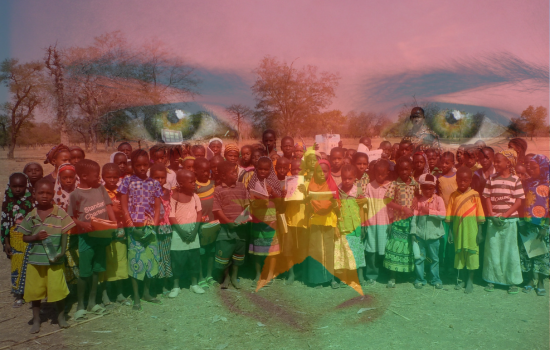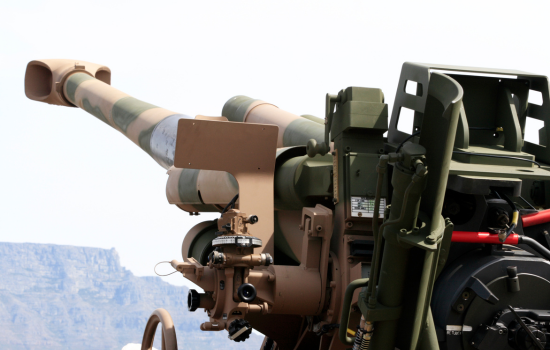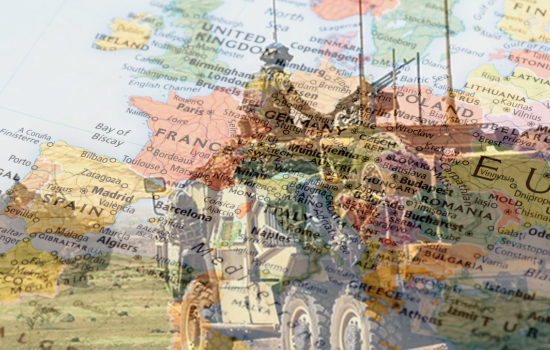Political Ramifications of the September 11 Attacks
Lecture delivered at ICT Conference in Solidarity with the United States of America: Terrorism post September 11, held at Herzliya on 11 September 2002.
I would like to say, first of all, that the terrorist attacks of 9/11 were not just a traumatic event, but also constituted a watershed in terms of the international community. This was the end of one period and the starting point of another, which is why it is also important to emphasize those things that have not changed.
The international system is uni-polar; the United States is the only superpower. The other actors in this arena would prefer a multi-polar situation, but the European Union and the other national actors are very far away from the status of the United States, as are their capabilities. Some of these nations even depend on aid from the United States. Thus, their aspirations to reach the status of a superpower are not going to be fulfilled in the near future. This has not been changed by the September 11 attacks.
Also unchanged are some other features of the international reality, such as the division between North and South, between rich and poor. Regional conflicts continue unabated, amid constant tension between security needs and human rights.
Still, the events of 9/11 have resulted in some new trends. The global village has shrunk even further, and the flow of information from one end of the world to the other is faster than ever. The world has come to understand that terrorism has a global reach, and that no place in the world is safe from terrorist attacks. The events of 9/11 emphasized that even conventional powers can not preempt destructive attacks by weaker powers. At the same time, perhaps the most important development is the exposure of the weakness of the strong versus the strength of the weak. And yet, perhaps paradoxically, the stronger powers have been further strengthened. It has been clearly shown that the main threat to world peace is a set of rogue states that are ready and willing to use non-conventional means with no moral or ethical reservations.
It is these nations and their supporters that constitute the “axis of evil.” Because this is a global threat, it must be countered globally, rather than locally, and such a campaign can be lead only by a superpower such as the United States. For this reason, the status of the United States as a super power—as the only super power—is even more prominent today. The 9/11 events have solved the internal debate in the United States concerning unilateralism versus multilateralism. More importantly, there is now a new “super system” and “super agenda” in international relations, with its own values and objectives. These new values do not automatically replace the former international set of values, and many of the former norms and rules of the game are still there. However the older rules have been overshadowed by the new priorities, which frequently suspends or even nullifies them. There is a new dichotomy; the world is divided between good and evil—meaning those involved in international terrorism. Every actor in this new world must define itself in terms of “either with us or with our enemies;” there is no other alternative.
Even before the 9/11 events, the principle of avoiding the involvement in the internal affairs of another country had come into question. For example, the international community became involved in the former Yugoslavia territory under the justification of principles of human rights. Today, what determines the attitudes toward different regimes and their internal affairs is the behavior of these countries on this continuum between the good and the evil. It is justified to taken action against those countries belonging to the “axis of evil,” whether by taking preemptive action against a regime developing non-conventional capabilities, or by taking action to change the regime itself.
It is important to note that by encouraging democratic voices in a particular state, while attempting to exert internal pressures towards democracy, is another way the United States is trying to change the regimes. The American Administration has avoided determining specific “degrees of evil” and specifying the appropriate action to be taken in each case. Such action is mostly decided upon by a more practical approach based on the security situation. However, I would suggest that there is at least a partial correlation between the image of “evilness” and the actions that are chosen.
I would like to deviate a little bit into the Israeli-Palestinian conflict. On April 26th of this year, President Bush said: “…so that the Palestinian State can be born. I call on all the Palestinian people to elect new leaders not compromised by terror. I call upon them to build a practicing democracy based on tolerance and liberty.” Despite the fact that President Bush never placed Arafat in this axis of evil, he actually does quite clearly believe that Arafat is not far from it. Bush also describes what actions the Palestinian people can take in order to achieve peace in the region and a state of their own. Regime change, or in this case leadership change is a means to a political existence on the international stage.
It also follows that the United States is more apt to support other countries suffering from years of terrorism. Israel has for years insisted that terrorism is a long-term problem, and that the arming of rogue states with non-conventional weapons is a danger to the whole world. Twenty years ago, Israel took preventive action against Iraq’s nuclear program and was universally condemned for it. Today, such activity is less likely to meet with shock and condemnation. The solidarity with the United States is quite important to both countries. A state that finds itself in an area replete with terrorist organizations and rogue states cannot help but see the benefits of the U.S. leadership in this campaign.
It seems to me that being able to justify counter-terrorist activity is very important. However, we must keep in mind the fact that the justification is not always immediately obvious to all. There is much that can be done against terrorism, but there are reservations and limitations to what should be done. In terms of Realpolitik, what is permissible to a superpower is not necessarily permissible to other countries. For example, the accidental American bombing of guests at an Afghan wedding will be seen in a different light than a similar mistake made by a smaller country, such as Israel. The U.S. is naturally pursuing its own interests in the region and thus expects its allies in the region to take these interests into consideration before taking action. We are constantly reminded that there is a wide coalition supporting the United States. But this coalition has its own attitudes, its own reservations, its own approaches to how and when to act. Quite often we differ with these approaches.
All this raises the question as to whether the United States can be the policeman of the world on its own and whether it can dictate to the whole world rules of behavior. The United States recognizes its own power—its own capabilities—and in what seems to the American Administration as key issues, it seems to me that the United States does not find it difficult to dictate to others and even to act on its own or almost on its own. The American administration believes in its capabilities and in the justice of its cause, and believes that its activities will contribute towards the welfare of the international community. This belief stems from the conviction that a successful outcome of the American campaign will lead to a better, safer world, even if this better world cannot exist during the campaign itself. Nothing succeeds like success. This success is going to benefit many countries—countries that because of internal political constraints cannot openly support the U.S., and indeed must express reservations. And yet these countries will breathe a sigh of relief and secretly applaud the United States if only the campaign can succeed. The United States is ready to act on its own if necessary, but it also recognizes the importance of tworld arena. Thus the importance of attempts to recruit sympathy and understanding, especially since there is an interrelationship between public opinion in the United States and international attitudes.
In view of the willingness of the United States to go ahead, even on its own if there’s no other choice, we should also examine the approach of other nations to this campaign. I shall give just one example, which should serve as food for thought, and this is the French approach. France is, as you know, one of the main elements in the European Union and a nation with its own input into the international order of things. At the end of August there was a convention of French ambassadors to other countries in Paris. At this convention the Minister of Foreign Affairs said that the international community should be based on three fundamental pillars: cooperation, legitimacy and justice. The cooperation suggested by him is between the United States or its “dynamics and energy” as he said, and Europe, which has so much “gravitas” and which recognizes the need for an uncompromising campaign against barbarism. This partnership was called by him, “Euro-Atlantic” cooperation. However, he was ready to see China, India as supportive elements in this partnership. In other words, he suggested that Europe and the United States lead as equal partners in the leadership of the world, with each partner contributing to this partnership what is unique to it: one, its energy, and the other, its wisdom.
This declaration of war against the “axis of evil”—against non-conventional arms and terrorism—has international ramifications. Even the campaign against Al-Qaida itself means dealing with dozens of cells spread all over the world. The need to improve or to change regimes and bring them towards true democracy is perhaps a Sisyphean task, and may well be a campaign based on the best intentions but which may not necessarily bring about the best results. So we have to ask whether the United States is going too far when it attempts to mold or shape the social, political and international character of states, not only towards a brave new world but also towards a good new world. It seems to me that the United States knows how large this mission is, and yet is supported by the belief that a combination of two types of activity will eventually lead to success: First of all, the relentless campaign against this circle of evil and secondly, the fact that each success will result in other hostile entities giving up before the campaign even starts. Many regimes that are aware of their deficiencies are going to mend their ways before they are even approached by the United States. The United States is also talking about an attempt to develop more openness, more democratization in many countries, in the belief that such internal developments will bring about positive behavior out of the conviction of the population.
Concerning the Middle East, alongside the campaign against terrorism, the U.S. Administration has come up with a plan, according to which the United States will offer its help in terms of democratization and socio-economic development to the countries in the region. I would sum up and say that we in Israel, as in any other country, are interested in the success of the American attempt; even if the result is only a slightly better world, the benefit to our region will be immense.






